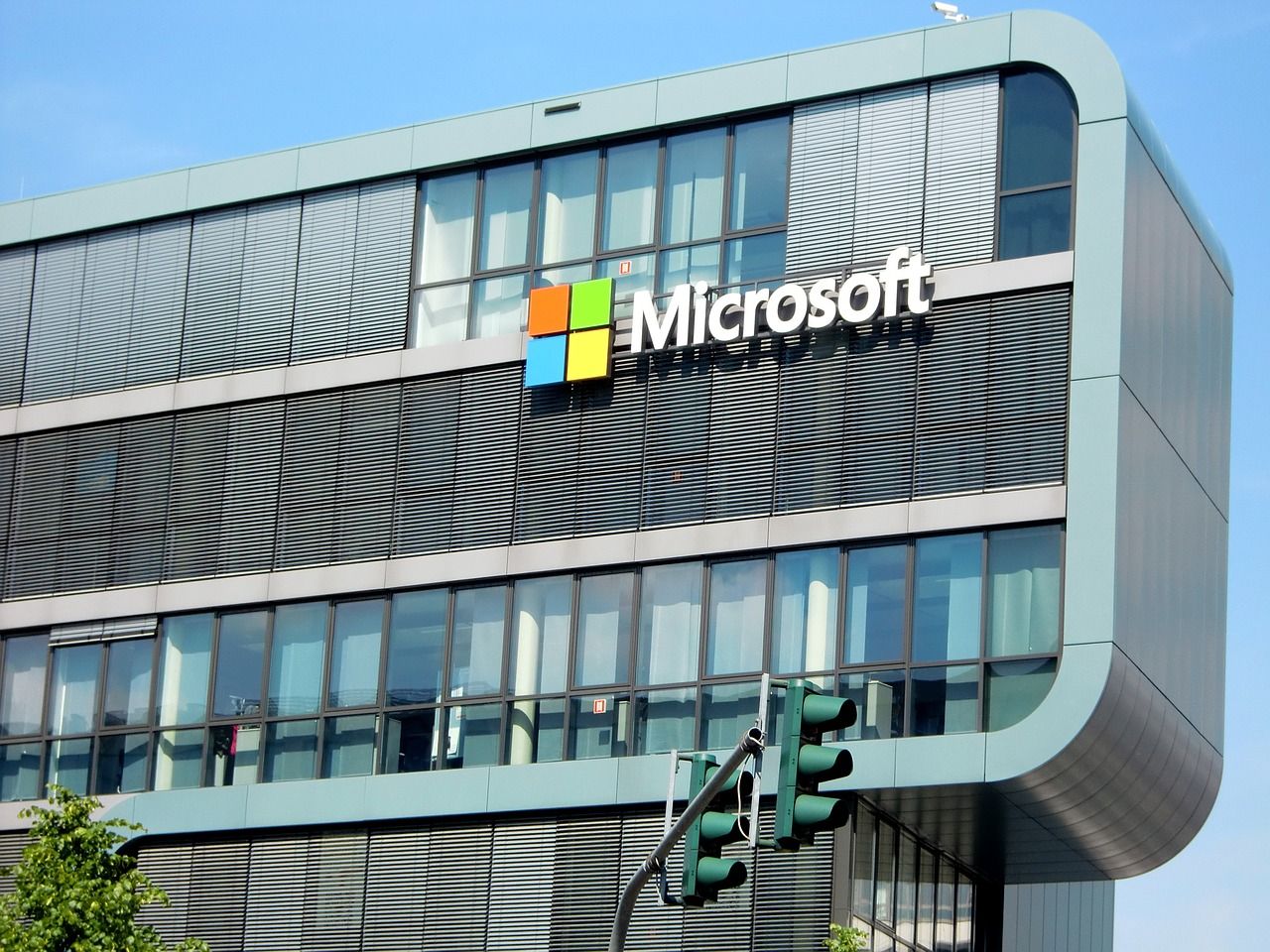The title of the most valuable company has recently switched hands as Microsoft overtakes Apple in market valuation. Market dynamics have witnessed a seismic shift, with Microsoft's ascent to the top, effectively outshining its perennial competitor, Apple. This achievement has an intriguing side that is intricately intertwined with the world of generative artificial intelligence (AI), where Microsoft has emerged as a frontrunner, fueled by its strategic investment in OpenAI, the pioneering minds behind ChatGPT.
As the stock market was closing Microsoft's shares exhibited a remarkable surge, securing a 0.5% gain that propelled its market valuation to an impressive $2.859 trillion. At the zenith of the session, the company momentarily touched $2.903 trillion, temporarily overshadowing its longstanding adversary, Apple. This pivotal moment in the tech landscape was not a shocker to anyone, as D.A. Davidson analyst Gil Luria put it, "It was inevitable that Microsoft would overtake Apple since Microsoft is growing faster and has more to benefit from the generative AI revolution."

The journey to this peak for Microsoft was navigated strategically, notably marked by the effective and seamless integration of OpenAI's cutting-edge technology into its suite of productivity software. This visionary move triggered a renaissance in Microsoft's cloud-computing business during the July-September quarter, this in turn set stage for their surge to the top.
Apple also finds itself trying to overcome a myriad of challenges. A notable decline in demand particularly for its cash cow, the iPhone, has cast a financial shadow over the tech giant. The economic slowdown in China, coupled with the resurgence of Huawei, has further eroded Apple's market share, prompting Redburn Atlantic to downgrade its shares to a cautious "neutral."
Analysts covering Apple are changing their outlook and position, with at least three of them lowering their ratings in the early days of 2024. This has resulted in Apple's stock experiencing a 3.3% dip in January, a contrast to Microsoft's commendable 1.8% rise. Both companies, however, find themselves navigating a precarious path, as their share price to earnings ratios reflect elevated valuations.
The key to Microsoft's success lies in its unwavering commitment to artificial intelligence, underscored by a substantial $10 billion investment in OpenAI. A recent showcase of its AI capabilities at an event in San Francisco left developers and analysts alike impressed, with CNBC reporting that they were "encouraged by the momentum around the most mature AI products." This has firmly positioned Microsoft as a trailblazer in the ever-evolving landscape of artificial intelligence.
Looking ahead, the trajectory of the tech landscape in 2024 is undeniably going to be hand in hand with the continued ascent of artificial intelligence. Kathleen Brooks who is the founder of Minerva Analysis, emphasizes, "AI will carry on being a dominant theme in 2024 we're kind of only scratching the surface of it at the moment."

Meanwhile, Apple's challenges continue to mount. Legal battles impeding the sale of Apple Watches, multiple stock drops and formidable challenges in the Chinese market have created a perfect storm. Huawei's strong growth in popularity and the prohibition on Chinese government officials using Apple devices have added another layer of complexity to Apple's predicament.
The success trajectory of Microsoft extends beyond market dynamics. The company's embrace of artificial intelligence has positioned it at the forefront of innovation. The $10 billion investment in OpenAI, led by Sam Altman, has proven to be a strategic masterstroke, paving the way for Microsoft's dominance in the generative AI space.
On the other side of the spectrum, Apple, despite being an iconic brand, has encountered the decline in demand for its flagship product, the iPhone which has raised concerns among investors and analysts. The economic slowdown in China, a pivotal market for Apple, coupled with the resurgent competition from Huawei, has posed formidable challenges. Redburn Atlantic's decision to downgrade Apple's shares to "neutral" reflects the uncertainties surrounding the company's performance.
Apple's difficulties in China further compound its challenges. The ban on Chinese government officials from using Apple devices being one of them. Jefferies analysts' revelation of a 30% year-on-year decline in iPhone 15 sales in China adds to the list of concerns, reflecting a complex blend of economic, geopolitical, and competitive factors.
As we embark on the journey into 2024, the clash of tech titans serves as a compelling narrative, with the spotlight firmly on the role of artificial intelligence in shaping the future of technology.







